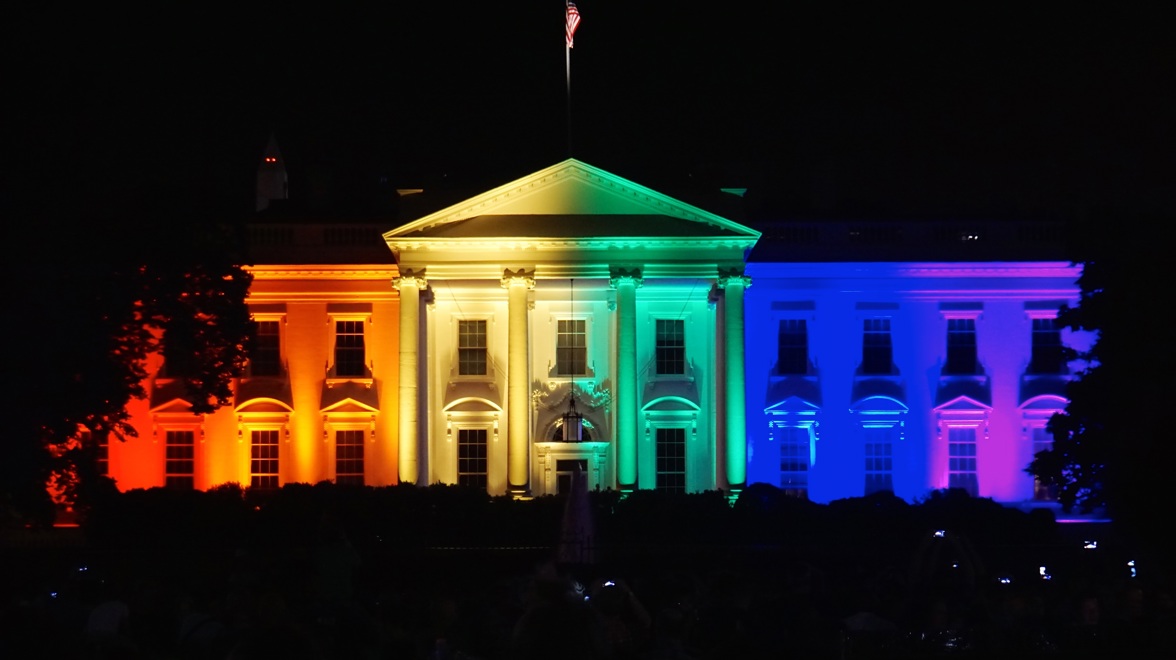If Obama is the “first gay president,” there were two Supreme Court decisions in 2015 that did a lot to shore up this legacy. In June, the Supreme Court made marriage equality the law of the land. That same month, the Supreme Court upheld critical provisions of Obamacare, despite more than fifty congressional challenges to the law.
These two Supreme Court decisions are not unrelated. In sickness and in health, partnership and wellbeing have long been intertwined. Following the Supreme Court decision in Obergefell v. Hodges, all state marketplaces and Medicaid programs must guarantee married same-sex couples the same family coverage and financial assistance as heterosexual partners. Today, insurers can no longer deny coverage based on pre-existing conditions or place limits on annual or lifetime coverage, which is of particular importance for people living with HIV/AIDS.
However, a success story that focuses on marriage equality hides all the ways that LGBT health needs are going unmet, just as aggregate Obamacare numbers neglect the millions of Americans who remain in the coverage gap in states that refused to expand Medicaid. Without serious reform of medical education and insurance benefit packages, the many LGBT health disparities will persist.
From cancer to suicide rates, disparities are exacerbated by stigma and a lack of cultural competency among providers and insurers. More than half of LGBT people report facing providers who have denied care, used harsh language, or blamed their sexuality or gender identity as causes of illness. These disparities are caused and compounded by higher rates of poverty, uninsurance, homelessness, and violence exposure.
This story applies most of all to the transgender community. Nearly forty percent of transgender people report harassment or discrimination when seeking routine health care. Tanya Walker, a black trans woman of the Audre Lorde Project, notes that navigating the health care system is moving through a system not designed with people like her in mind. “How are we [supposed to be] getting adequate mental health care [if they] don’t know anything about our race, culture, or gender identity?” she asks.
Transgender individuals may require, for example, both a mammogram and a prostate exam. Despite recent expansions, many insurance plans will still not cover medically necessary preventive and acute care considered gender-specific or related to gender transition, despite the fact that this care has been deemed medically necessary and cost-effective.
Though a growing number of insurers are offering inclusive plans, including more than a quarter of Fortune 100 employers, plans without transgender-specific exclusions remain inaccessible to many. The increased visibility of transgender individuals, Time Magazine’s ‘transgender tipping point’, has largely obscured the violence transgender communities continue to face.
In health education, less than half of the nation’s medical and public health school curricula address LGBT health concerns beyond HIV/AIDS. Transition-related care and pre-exposure prophylaxis (PrEP) are relevant terms for any provider or insurer to know, not just those with “LGBT health” specializations. When the greatest number of new infections among men who have sex with men (MSM) occurs among young black men, providers need training in intersectional issues of race, gender, and sexuality. Such competencies translate to the health insurance outreach and enrollment efforts as well. Promising practices include employing transgender-identified navigators to assist individuals through the enrollment processes.
The celebratory marriage equality and Obamacare stories minimize the intersectional struggles of low-income queer people who can now legally marry but fall in the health insurance gap of a state that refuses to expand Medicaid. It obscures the large racial disparities faced by LGBT people of colour.
Ensuring people have the ability to be openly and authentically themselves—regardless of gender and sexuality—depends on people being healthy—and alive. As we begin another year of insurance premiums and matrimonial vows, let’s celebrate the victories for marriage equality and health equity while realizing that both are only success stories for some.
Katherine Warren (Massachusetts & Hertford 2014) is studying MPhil Medical Anthropology and works and writes on U.S. healthcare policy. Joshua Aiken (Missouri & Pembroke 2014) reads MSt in US History and is a human rights advocate with a focus on criminal justice and LGBT issues. This article was originally published in ‘The Hill’ blog on 4 March 2016. Photo credit:tedeytan at https://www.flickr.com/photos/taedc/18588276403/ via Wikimedia Commons.


